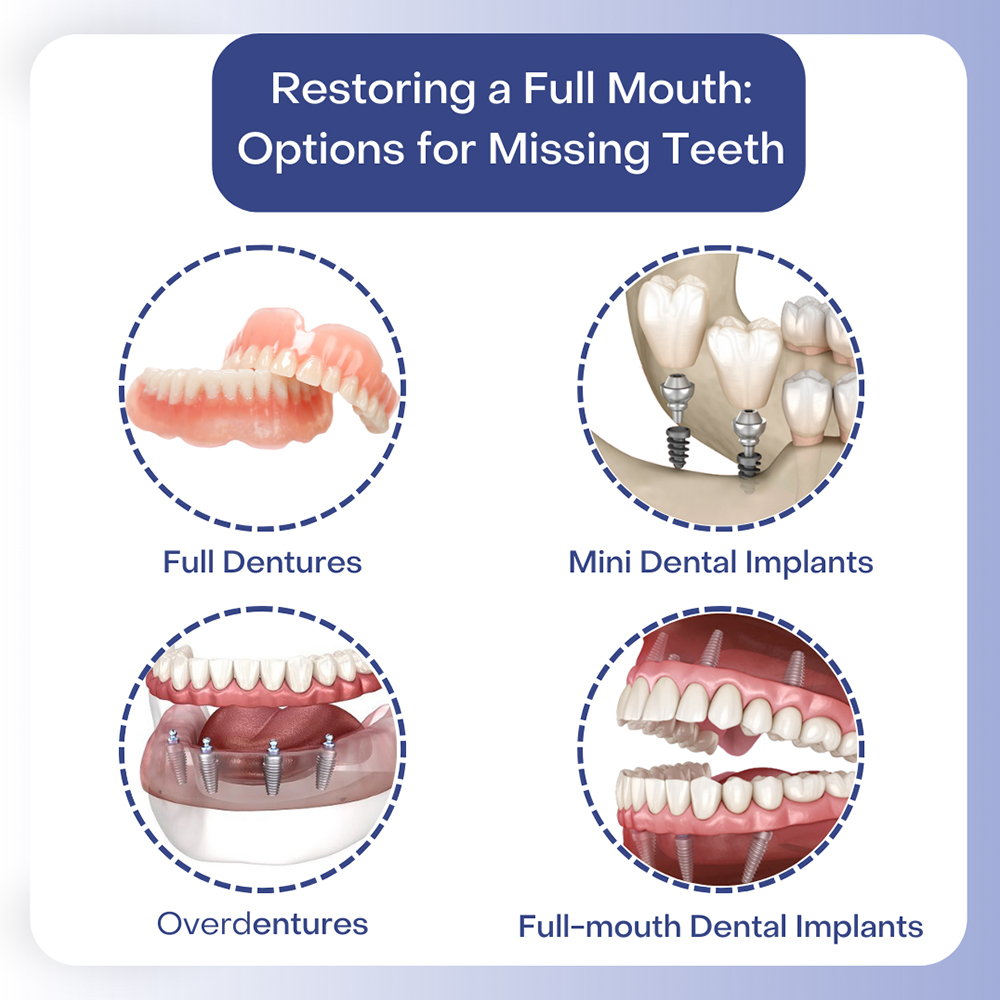Some Of Dental Sense
Some Of Dental Sense
Blog Article
5 Easy Facts About Dental Sense Explained
Table of ContentsFascination About Dental SenseThe 6-Minute Rule for Dental SenseGetting My Dental Sense To WorkSome Of Dental Sense
are clinical gadgets surgically implanted into the jaw to bring back an individual's capacity to chew or their appearance. They provide assistance for artificial (phony) teeth, such as crowns, bridges, or dentures. When a tooth is lost as a result of injury or condition, a person can experience issues such as rapid bone loss, faulty speech, or modifications to eating patterns that lead to discomfort.Dental dental implant systems include an oral implant body and dental implant abutment and may likewise consist of an abutment fixation screw. Front tooth filling. The dental implant body is operatively put in the jawbone in location of the tooth's root. The dental implant abutment is usually affixed to the dental implant body by the joint addiction screw and expands through periodontals right into the mouth to support the affixed man-made teeth
(https://dentalsense1.carrd.co/)Framework of The Dental Implant System selecting oral implants, speak to your dental supplier concerning the potential advantages and threats, and whether you are a candidate for the procedure. Things to consider: Your general health and wellness is an important aspect in establishing whether you are a good candidate for dental implants, how long it will require to recover, and for how long the implant might remain in place.
Cigarette smoking might affect the healing procedure and reduce the lasting success of the dental implant. The healing process for the implant body may take a number of months or longer, during which time you generally have a momentary joint in place of the tooth. the oral implant procedure: Thoroughly follow the dental health directions offered to you by your dental supplier.
Rumored Buzz on Dental Sense
Implant failure can lead to the need for an additional surgical treatment to fix or change the dental implant system. Brings back the capacity to chew Recovers aesthetic appearance Helps maintain the jawbone from shrinking as a result of bone loss Maintains the health and wellness of the surrounding bone and gums Aids maintain adjacent (neighboring) teeth stable Enhances lifestyle Damages to bordering all-natural teeth throughout dental implant placement Injury to the surrounding cells throughout surgery, such as sinus perforation Injury during surgical treatment (as an example, fracture of bordering jawbone) Poor feature, such as seeming like the teeth do not bite with each other normally A feeling that the tooth hangs or twisting in position arising from a joint screw loosening Implant body failing (looseness of the dental implant body) due to systemic infection, which may be most likely in clients with uncontrolled diabetes as a result of neighborhood infection in bone and gum tissues sustaining the dental implant body due to delayed healing, which might be most likely in clients who smoke Trouble cleansing the periodontals around the dental implant, causing bad dental health Unattended gum disease Post-surgical pins and needles as a result of nerve impingement or why not try this out damage Always alert health and wellness treatment providers and imaging service technicians that you have oral implants before any type of magnetic resonance imaging (MRI) or x-ray procedures.
FDA is not conscious of any kind of adverse events reported for MRI or x-ray procedures with oral implants. Oral implants systems are usually made of materials that follow worldwide consensus requirements of the International Organization for Standardization (ISO) or ASTM International. These standards have information of what makes a safe material.

A dental implant is a framework that replaces a missing tooth. With screw-like devices, the doctor inserts an implant right into the jawbone, and it acts as an anchor for an artificial tooth, called a crown.
A Biased View of Dental Sense
Some people are not eligible for oral implant surgical treatment. It is for oral doctors to operate people with: intense illnessuncontrollable metabolic diseasebone or soft cells disease or infectionIf these concerns are settled, an individual can have the surgery. In, dental cosmetic surgeons avoid operating people with: If individuals with any one of the above undertake oral implant surgery, there is a greater danger of the dental implant stopping working.

Oral implant surgery is an individualized process. Provide you time to recover. Attach the blog post and final crown, bridge or denture.
Next off, your specialist will very carefully put the dental implant into your jaw. If your implant is near the front of your mouth, your dentist will certainly make a short-lived tooth for you to use until you recover.
An Unbiased View of Dental Sense
During the healing phase, your jawbone should fuse to the dental implant. This process can take anywhere from three to 9 months.
As soon as your implant heals, your dentist can connect the abutment (little connector blog post) and your last restoration (crown, bridge or denture). This normally takes regarding one hour to finish and may need a 2nd minor surgical treatment. You shouldn't really feel any kind of discomfort during your dental implant procedure because your company will use drug to numb your gums.
Report this page